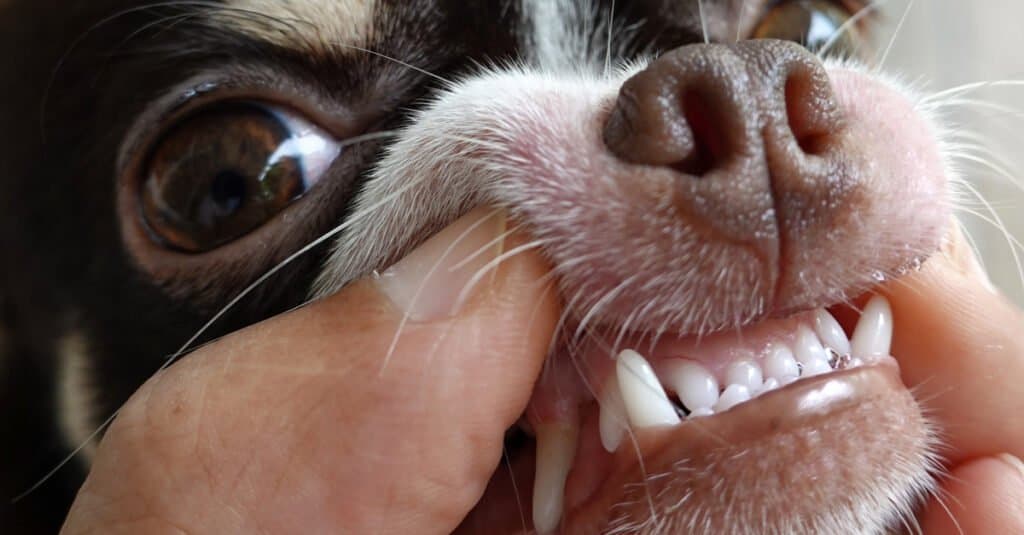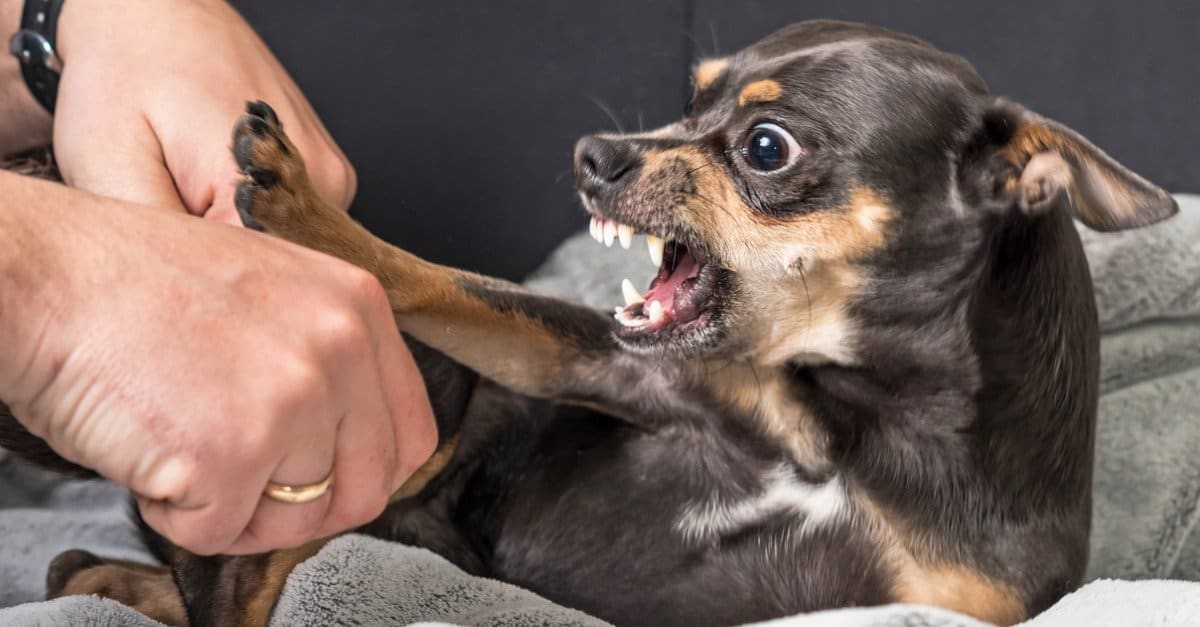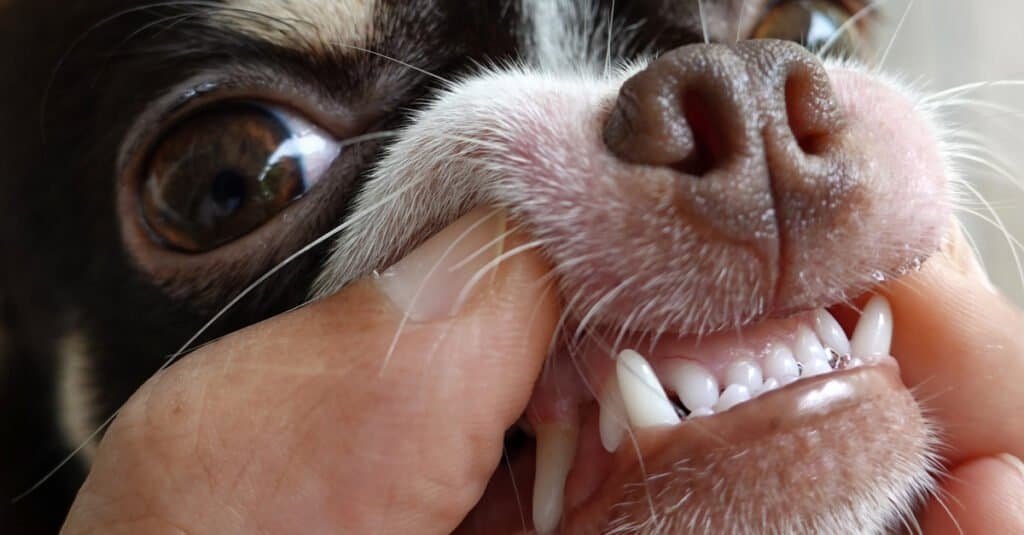Have you ever wondered what chihuahua teeth should look like? Well, did you know that chihuahuas actually have the same number of teeth as larger dog breeds? Despite their small size, they have 42 teeth just like their bigger counterparts. But what should these tiny teeth actually look like?
When it comes to chihuahua teeth, there are a few important aspects to consider. Firstly, their teeth should be clean and free from tartar or plaque buildup. Regular dental care, such as brushing, can help maintain their pearly whites. Additionally, their teeth should be aligned properly, with no signs of overcrowding or misalignment. This is important as it can prevent dental issues such as tooth decay and gum disease. By keeping their teeth clean and ensuring proper alignment, chihuahuas can maintain a healthy and happy smile throughout their lives.

What Should Chihuahua Teeth Look Like? A Comprehensive Guide to Chihuahua Dental Health
Chihuahuas are adorable and popular companions, known for their small size and big personalities. As responsible dog owners, it is essential to ensure that our furry friends stay healthy, including taking care of their dental hygiene. In this guide, we will explore what chihuahua teeth should look like, the common dental issues they may face, and how to maintain their oral health.
1. Understanding the Normal Dental Anatomy of Chihuahuas
Chihuahua teeth should have a clean, white appearance, with no signs of discoloration or buildup of tartar. They should be aligned properly and without any crowding or overlapping. As these tiny dogs have a small jaw, they typically have 42 teeth, including incisors, canines, premolars, and molars.
It’s important to note that puppies have temporary teeth, also known as “milk teeth,” which are eventually replaced by their permanent teeth. By the age of six months, adult teeth should have fully grown in.
Regularly checking your chihuahua’s teeth can help you identify any abnormalities or potential issues early on. If you notice any redness, swelling, bleeding, or smell from their mouth, it’s essential to consult a veterinarian.
2. Common Dental Issues in Chihuahuas
Despite their small size, chihuahuas can experience various dental problems. Some of the most common issues include:
- Dental Tartar: Chihuahuas are prone to tartar buildup, which can lead to bad breath, gum disease, and tooth decay.
- Malocclusion: This is a misalignment of the teeth and jaw, which can cause discomfort and difficulty in eating.
- Tooth Loss: Due to factors such as gum disease or dental trauma, chihuahuas may experience tooth loss.
- Gingivitis: Chihuahuas may develop gingivitis, an inflammation of the gums, if their oral hygiene is not properly maintained.
Regular dental check-ups with a veterinarian are crucial to detect and address any dental issues promptly. They may recommend professional cleaning, tooth extraction, or other necessary treatments to ensure your chihuahua’s oral health.
3. Maintaining Chihuahua Dental Health: Tips and Best Practices
To keep your chihuahua’s teeth in excellent condition, follow these tips:
- Regular Brushing: Brush your chihuahua’s teeth at least two to three times a week using a soft-bristled toothbrush and dog-friendly toothpaste. Start slowly to accustom your pet to the process.
- Dental Chews and Toys: Offer dental chews or toys designed to promote oral health. These can help reduce tartar buildup and improve dental hygiene.
- Healthy Diet: Provide a balanced diet that promotes good overall health, including dental health. Avoid sugary or sticky treats that can contribute to tooth decay.
- Regular Vet Visits: Schedule regular dental check-ups with your veterinarian to monitor your chihuahua’s oral health and address any emerging issues.
Remember, prevention is the key to maintaining good dental health for your chihuahua. By implementing these practices, you can ensure that your furry friend enjoys a healthy and happy smile.
4. The Importance of Professional Dental Cleanings for Chihuahuas
While at-home dental care is vital, professional dental cleanings should not be overlooked for chihuahuas. Even with regular brushing, tartar can still accumulate and lead to gum disease or other dental problems.
A veterinarian will perform a thorough cleaning using specialized tools and techniques. They will also assess the overall dental health of your chihuahua and address any concerns. Professional cleanings may be recommended annually, or more frequently for chihuahuas with existing dental issues.
5. Finding the Right Dental Products for Chihuahuas
When it comes to dental products for your chihuahua, it’s essential to choose those specifically designed for dogs. Dog-friendly toothpaste, toothbrushes, and dental chews are widely available in pet stores and online. Consult with your veterinarian to find the most suitable products for your chihuahua’s needs.
Additionally, avoid using human toothpaste, as it can contain ingredients that are toxic to dogs. Always follow the instructions provided with dental products and monitor your chihuahua during brushing or chewing sessions to ensure their safety.
6. Other Factors Affecting Chihuahua Dental Health
While dental hygiene is crucial, other factors can impact your chihuahua’s dental health:
- Age: As your chihuahua gets older, they may be more prone to dental issues. Regular check-ups become even more important to catch and address problems early on.
- Diet: A nutritious diet promotes overall health, including dental health. Provide your chihuahua with high-quality dog food and avoid giving them human food that may be harmful to their teeth.
- Genetics: Some chihuahuas may be genetically predisposed to certain dental conditions. If you are aware of any hereditary concerns, inform your veterinarian for appropriate monitoring and care.
By considering these factors alongside proper dental care, you can ensure that your chihuahua’s teeth stay healthy throughout their life.
7. The Long-Term Benefits of Maintaining Chihuahua Dental Health
Investing time and effort into maintaining your chihuahua’s dental health has various long-term benefits:
- Better Overall Health: Poor dental hygiene can lead to systemic health issues, such as infections, heart disease, or kidney problems. By keeping your chihuahua’s teeth clean, you are promoting their overall well-being.
- Preventing Tooth Loss: Regular dental care helps prevent tooth loss, ensuring that your chihuahua can continue to eat, chew, and enjoy their food without discomfort.
- Fresher Breath: Proper oral hygiene reduces bad breath caused by dental issues, making your chihuahua’s kisses more pleasant for everyone.
- Financial Savings: Preventive dental care is more cost-effective than treating advanced dental problems. By maintaining your chihuahua’s dental health, you can potentially save on costly dental procedures.
Remember, it’s never too early or too late to start prioritizing your chihuahua’s dental health. With proper care, you can help your furry friend maintain a healthy smile for years to come.
Statistical Fact: According to a study published in the Journal of Veterinary Dentistry, up to 80% of dogs over the age of three have some form of dental disease. Regular dental care can significantly reduce the risk of dental problems in chihuahuas and other dog breeds.
What Should Chihuahua Teeth Look Like? (Key Takeaways)
1. Chihuahua teeth should be clean and without any yellow or brown discoloration.
2. The teeth should be aligned properly, with no overcrowding or misalignment.
3. Chihuahuas should have a complete set of 42 teeth, including incisors, canines, premolars, and molars.
4. Tartar buildup and bad breath can indicate dental issues, so regular dental care is important.
5. Regular dental check-ups and professional cleanings are necessary to maintain good dental health for your Chihuahua.
What You Should Know About Chihuahua Teeth
When it comes to the dental health of your Chihuahua, there are a few things to keep in mind. Having a good understanding of what your Chihuahua’s teeth should look like can help you spot any potential issues and take appropriate action. Here are some common questions about Chihuahua teeth:
1. How many teeth should a Chihuahua have?
A healthy adult Chihuahua should have 42 teeth, just like any other adult dog. This includes incisors, canines, premolars, and molars. However, some Chihuahuas may have fewer teeth due to dental issues or extraction. It’s important to consult with your veterinarian to ensure your Chihuahua has the correct number of teeth and to address any concerns.
Proper dental care, such as regular brushing and professional cleanings, can help maintain your Chihuahua’s teeth and prevent tooth loss.
2. Are Chihuahua puppy teeth different from adult teeth?
Yes, Chihuahua puppies have a set of temporary teeth, also known as milk teeth or deciduous teeth. These teeth start to erupt at around 3 to 4 weeks of age and are gradually replaced by permanent teeth at around 4 to 7 months of age. Adult Chihuahua teeth are stronger and more durable than puppy teeth.
During the puppy teething process, it’s important to provide appropriate chew toys to help relieve discomfort and encourage the shedding of baby teeth. Regular check-ups with your veterinarian can ensure that the transition from puppy teeth to adult teeth is going smoothly.
3. What should a Chihuahua’s teeth look like?
A Chihuahua’s teeth should be clean, white, and free from tartar buildup. The gums should be pink and healthy, with no swelling or signs of infection. Additionally, the teeth should be aligned properly, without any overcrowding or misalignment.
If you notice any discoloration, bad breath, loose teeth, bleeding gums, or other dental abnormalities, it’s essential to consult with your veterinarian. These signs may indicate dental disease or other underlying health issues.
4. Can Chihuahuas get dental problems?
Yes, Chihuahuas are prone to dental problems, just like any other breed. Their small mouths and crowded teeth make them more susceptible to dental issues such as tartar buildup, gum disease, and tooth decay. Poor dental hygiene can lead to pain, difficulty eating, and even systemic infections if left untreated.
To prevent dental problems, it’s crucial to establish a regular dental care routine for your Chihuahua. This includes daily toothbrushing with a dog-friendly toothpaste, providing dental chews or toys, and scheduling regular professional cleanings with your veterinarian.
5. How often should I brush my Chihuahua’s teeth?
Ideally, you should aim to brush your Chihuahua’s teeth at least 2 to 3 times a week. However, daily brushing is even better. Regular brushing helps remove plaque and prevent tartar buildup, which can lead to dental disease. It’s important to use a toothbrush and toothpaste specifically designed for dogs.
If your Chihuahua is not used to having their teeth brushed, start gradually and make it a positive experience with rewards. Your veterinarian can also provide guidance on the best dental care routine for your Chihuahua based on their individual needs.

